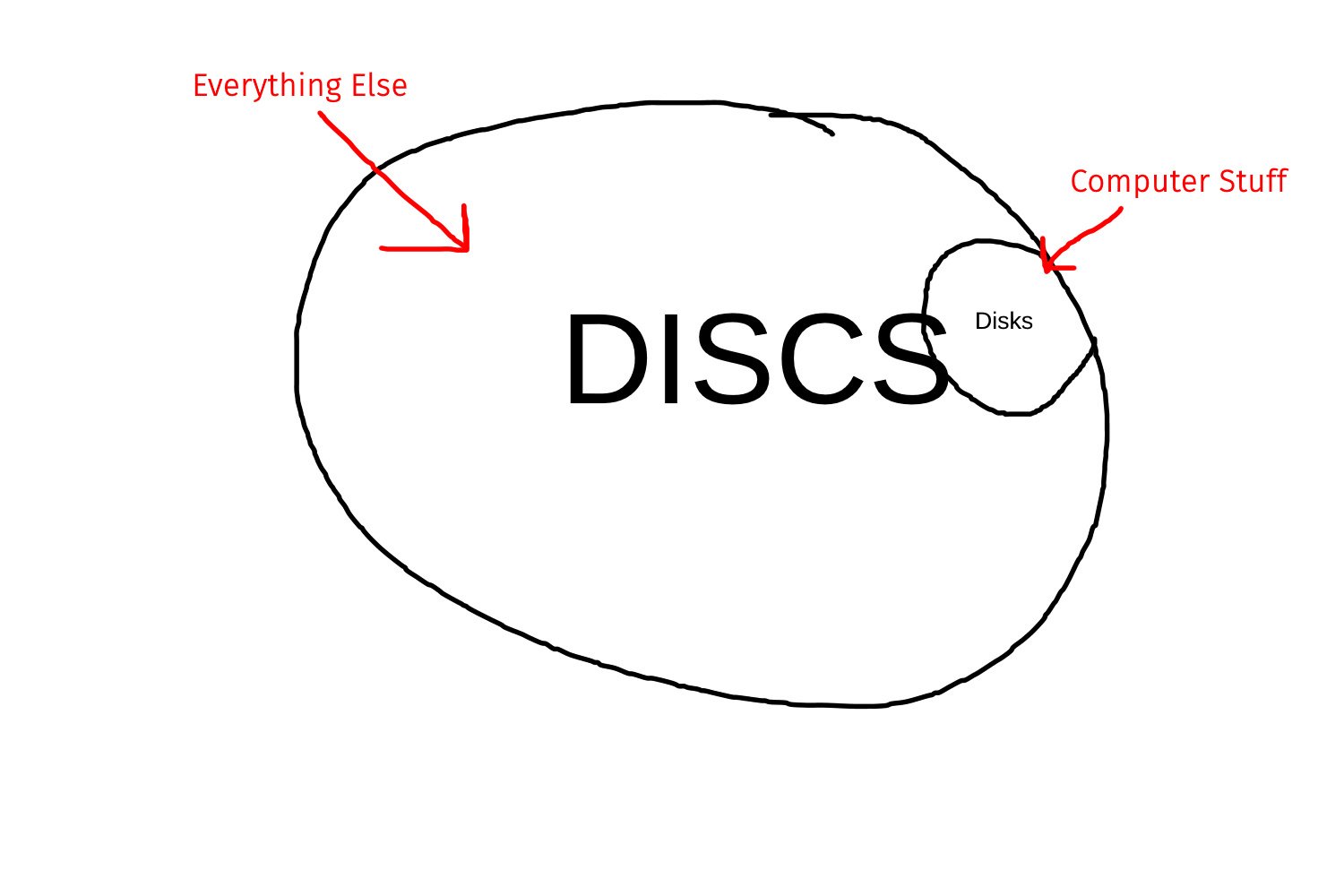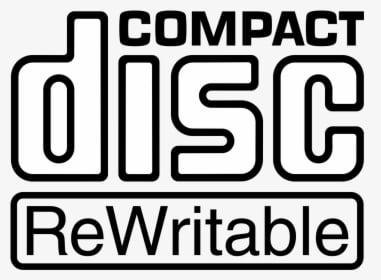I heard some people say theyre the same thing, but others are adamant that they have different meanings. Which is it?
Disck
https://en.wiktionary.org/wiki/disk
In most varieties of English, disk is the preferred spelling for magnetic media (hence floppy disk, hard disk, disk drive), whereas disc is preferred for optical media (hence compact disc, digital versatile disc, optical disc). For all other uses, disk is preferred in American English and acceptable in Canadian English, and disc otherwise.
Less commonly, disc is used for magnetic media (as in floppy disc and discette; similarly, disk is sometimes used for optical media, as in compact disk and optical disk.
The reason for this is actually pretty interesting though. Historically it was just a US/UK English difference, but it evolved into both being used because one of the first big manufacturers of optical discs, Philips, called them discs, while the US-based IBM spelled their magnetic disks with a K.
I’ve always known disc to refer specifically to optical media.
I’ve been known to use them interchangeably.
It’s British English (disc) vs American English (disk).
Edit: I present the Sony Portable Hard Disc Drive
It’s from diskette. Not about what country the spelling is from.
Prepare to have your mind blown.
Portable Hard Disc Drive https://pro.sony/en_GB/products/portable-storage/psz-hb-b-series
I don’t doubt the diskette comment since it’s an American invention. But sometimes this nuance shows up.
Has nothing to do with country. Discs are round objects. In the computing sense that’s cds, dvds, etc.
Disks are floppy disks(diskette, “discette” never existed as a word) , hard drive disks… etc. There is a difference and it has nothing to do with what land you’re in. Disk in usa never meant a circular object like a Frisbee (discus for example)
I think they got that from Wikipedia
Jerboa won’t let me post a screenshot right now but here’s a link
The fact that there’s even a document on Apple.com is mind blowing
That’s crazy. I like their interpretation though. A disc is ejectable but a disk isn’t.
i assure you that floppy disks are ejectable.
But the floppy diskette and the “hard disks” did in fact have circular discs inside that spin around.
I suspect that the word diskette was created as an analog to tape “cassette”. With both diskette and cassette, the media is stored inside an enclosure, and you don’t have to take it out manually.
“-Ette” is a common diminutive used to imply that something is a smaller version of something else. Like many things, we nicked it from the French.
Cigarette, a little cigar. Featurette, a short feature. Novelette, a miniature novel. Etc.
So, diskette, a little disk. Quite separate from the ones spinning in your company’s mainframe at the time. Those ones were two feet in diameter locked in a steel cabinet that weighs two tons. This one can fit in your shirt pocket. You get the idea.
This feels like it makes sense.
Considering “cassette” is the diminutive form of “casse” which meant “case,” this seems right. This meant that the magnetic tape was held in a “diminutive case” which was arguably true when compared to records and 8-tracks.
So, diskettes also being magnetic, also being encased in something, and also being the diminutive form of a larger thing tracks.
By george, I think they’ve got it.
Disc and disk are varient spellings of the same word that pre-exist computing. Disc is more common in British English, Disk more common in American English. But yeah since computing came along disk has also been used more for magnetic media (hard disk) while disc has been used more for optical media (compact disc). I wouldn’t be surprised if this only happened because of how the CD was marketed and branded as a “compact disc” as a trademark while hard disks and floppy disks etc were more generic terms.
In modern parlance, this has been my working understanding too:
But yeah since computing came along disk has also been used more for magnetic media (hard disk) while disc has been used more for optical media (compact disc).
Optical:
- compact disc
- laser disc
Magnetic:
- 3.5" diskette
- 800GB hard disk drive
…and just to point out there is some disagreement
Magneto-Optical , such as Sony MiniDisc, is sometimes referred to Disc for its optical properties and sometimes as a MO Disk for its magnetic properties.
Disq
Disque*
Disque?
Way too cumbersome
Disqueue, then.
Dischqueue
Disk is short for diskette
And disc is short for discotheque.
^not really^
At its root this was originally a British vs. American English thing. However, the spelling of “disc” with a C has been used specifically as the trade name of various brands including both the throwable and optical media varieties, which have since become genericized trademarks.
For the optical media side of things, the name was coined by Phillips while they were consorting with Sony to develop the standard and named it the “Compact Disc” to compliment their already existing “Compact Cassette” product. They developed an official logo for the format which spelled it “disc.” That’s been with us ever since.
Volumes of computer storage are now colloquially referred to as “disks” because A) a significant majority of the early computer development milieu in general happened in America where we, or at least IBM, spell it with a K, and B) for a very long time, that’s exactly what they were. Tape and magnetic core memory and wire loop memory were all early developments that ultimately gave way to the longstanding popularity of magnetic platter/disk fixed storage… With some exception granted to tape, which hung around for a very long time but definitely was not a random access storage medium suitable for general purpose applications whereas disks were. It’s probably pure happenstance that the dominant non-fixed computer storage media also wound up being disk shaped, namely the various sizes and types of floppy disks. Computers handle linear tape based storage and random access disk based storage very differently, and nowadays random access permanent storage still has the “disk” moniker stuck to it even though it’s now likely to be solid state.
As a generalized descriptor of a flat circular object, either “disk” or “disc” is appropriate but which is preferred seems to be largely depending on which continent you’re from. The root of the word is indeed the Greek “discus,” as in the object yeeted across the playing field by Olympic contestants.
For the optical media side of things, the name was coined by Phillips while they were consorting with Sony to develop the standard and named it the “Compact Disc” to compliment their already existing “Compact Cassette” product. They developed an official logo for the format which spelled it “disc.” That’s been with us ever since.
Didn’t LaserDisc predate Compact Discs?
It did. That may have influenced the naming convention. The LaserDisc was actually originally conceived as the “DiscoVision.” And if that name isn’t a veritable time capsule of its era, I don’t know what is.
Perhaps it’s just a leftover marketing motif?
"The spelling disk and disc are used interchangeably except where trademarks preclude one usage, e.g., the Compact Disc logo. The choice of a particular form is frequently historical, as in IBM’s usage of the disk form beginning in 1956 with the “IBM 350 disk storage unit”. "
All I know is there’s no such thing as a discette.
There is, or was, tho.
There is a dicklette or so your wife claims.
Could be because c followed by e is usually pronounced “s” rather than “k”
umm, are you suggesting that all discs are male???
Discs are asexual. It’s why they can make offspring without a partner.
Disk but with a soft k, like in kif
As others have said and how I always see it:
- Discs are small, circular, flat objects, e.g. the discus;
- Disks are discs used for computer stuff, e.g. floppy disk(ettes), CD-ROMs, DVD-ROMs, hard disks, and so forth…
In other words, all disks are discs, but not all discs are disks.
Here’s a shitty drawing I made to illustrate:

You have to put a segment of “disk” outside of the “disc” set on that Venn diagram. You are forgetting about solid state disks.
But SSD is solid state drive, not solid state disc/disk
upvoted for your spiffy drawing, although i don’t agree with it
Lol, thanks.
What about my distinction do you disagree with, though?
I don’t think the differentiation makes any sense at all.
edit: to clarify-- this isn’t a criticism of the op’s sketch; i just don’t think any attempt makes sense
my attempt to simplify the above explanation; -disc =round -disk =storage
Storage can be round but not all round things are storage
But that doesn’t cover the round storage we call compact discs. It’s just nonsensical
I mean to me compact disc sounds like small and round. Just happens to also be storage media 🤷♂️
There’s nothing wrong with over thinking a shitpost, right?
But…

I was wondering how CD-RW works, if anyone else wants to know:
https://electronics.howstuffworks.com/question655.htm
They have a layer that can change between clear and opaque that is changed by having different temperatures applied to it.
In systems we consider discs to be optical devices and sometimes just lump any portable media as a “disc”
Once it’s on my system and seen as a device is becomes a
diskMy system’s locale is set to Esperanto so when I insert a CD, it says Sona KD (Kompakta disko).
A CD is a disk that is disc shaped.














